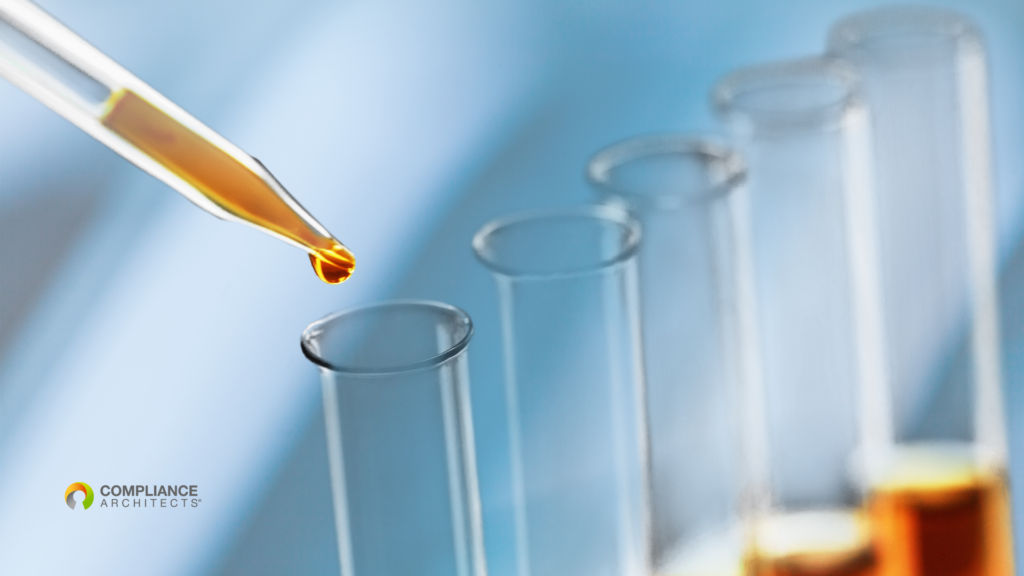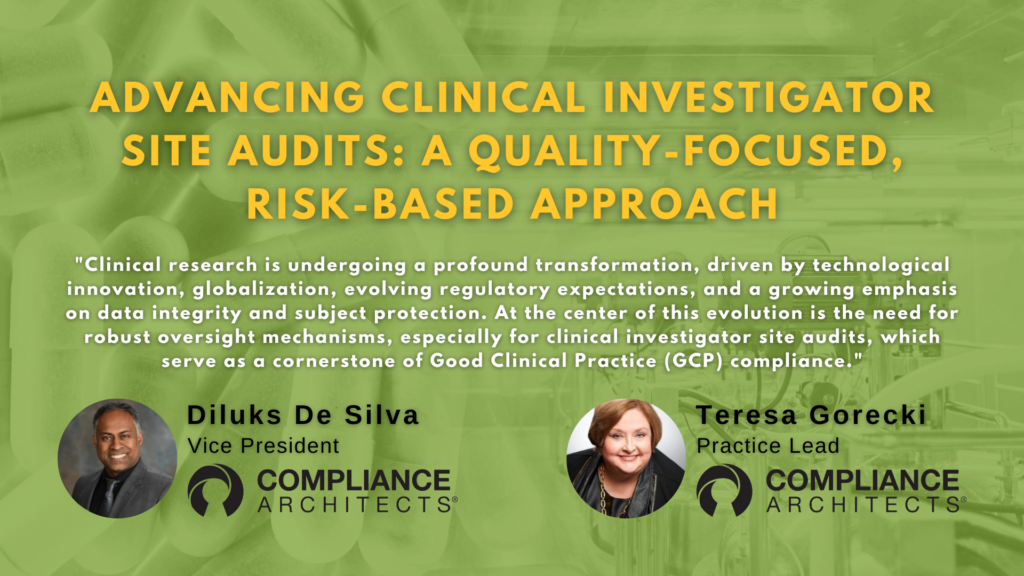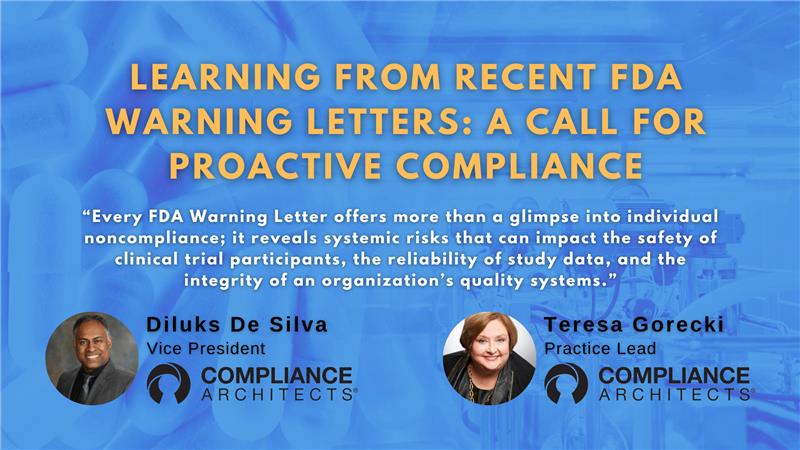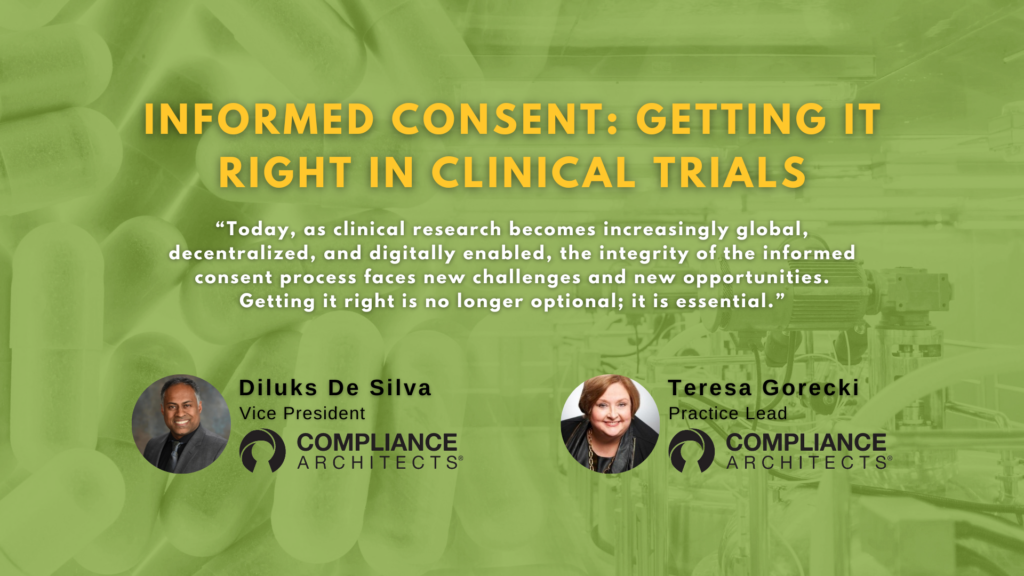Jack Garvey, Founder of Compliance Architects LLC is Co-Chair of the Bioanalytical Quality Standards Initiative. This initiative, conceived by Synomics Pharma Services, was founded to respond to years of inconsistent guidance and enforcement surrounding bioanalysis in support of clinical trials. Please contact Jack (see contact info below) for further information on this important pharmaceutical industry initiative.
The Bioanalytical Quality Standard Initiative Standard has been submitted to the FDA and has received a docket number.
Comments can now be added to the docket file. The file can be accessed via the internet at http://www.regulations.gov . Enter the docket number FDA-2009-D-0428 into the search field. Two results will appear; the submission letter and the document itself.

Table of Contents
Summary of Bioanalytical Quality Standard Initiative:
The Bioanalytical Quality Standard Initiative (BQSI) is a pharmaceutical industry working group that has been organized to develop a documented quality management standard for bioanalysis in support of clinical trials, amalgamating the best practices of GMP, GLP and ISO. Since early 2008, a robust, detailed standard has been developed and has gone through multiple reviews by an industry-led working group. Multiple meetings have been held in 2008 to review the standard and identify issues. Broader industry introduction is occurring with a number of industry groups and is currently undergoing a review with the US Food and Drug Administration.
Background Issues:
- Specific regulatory requirements or guidance documents for bioanalysis in support of clinical trials do no currently exist.
- Current methodology for bioanalysis of clinical samples is not uniformly applied across industry.
- Issues pertaining to accuracy and integrity of results have raised a level of concern with the FDA and specifically the Division of Scientific Investigations (DSI).
- Regulatory agencies are applying a higher level of scrutiny to bioanalytical results submitted in support of NDA/ANDA submissions.
- Industry has not developed a coordinated approach to identifying and adopting best practices for Quality Management Systems (QMS) in the execution of bioanalytical studies.
- Agency enforcement is not consistently applied to organizations and studies.
Prior / Recent Industry Activity:
- AAPS, in conjunction with the FDA, is beginning to address specific method validation parameters for assay reproducibility of quantitative analysis for pharmacokinetics and bioequivalence.
- GLP regulatory requirements for clinical studies are increasingly invoked by sponsors for bioanalytical studies.
- Pharmaceutical companies are using “Master Service Agreements” to define quality expectations, addressing aspects of event management (OOS, OOT), responsibility and reporting relationships, corrective and preventative actions, etc.
- QMS guidance documents have recently been issued by both the FDA (Guidelines for Quality System Approach to GMP Regulations) and ICH (Pharmaceutical Quality Management – Q10), based on the principles established through 21CFR 210, 211, 820 and ICH Q7A, cGMP.
Approach / Activities:
- An industry working has been organized and has developed a documented standard for quality management systems, amalgamating the best practices of GMP, GLP and ISO for execution of bioanalytical studies.
- This robust, detailed standard has been developed and has gone through multiple reviews by the working group.
- Multiple meetings have been held in 2008 and 2009 to review the standard and identify issues.
- Broader industry introduction is ongoing and planned (through industry meetings GPhA, AAPS, and PDA and a LinkedIn Group).
- The standard is currently under review by the FDA.
Expected outcomes:
- Provide more consistent enforcement by the FDA.
- Provide increased assurance for data integrity and validity.
- Potential for third-party QMS certification could assure both the FDA and the sponsor a greater likelihood of data integrity and reliability.
- Potentially reduce registration approval cycle due to fewer issues or concerns with bioanalytical studies that need to be addressed.
Contact Us
For further information on this important pharmaceutical industry initiative, please contact us by filling out the form below.





